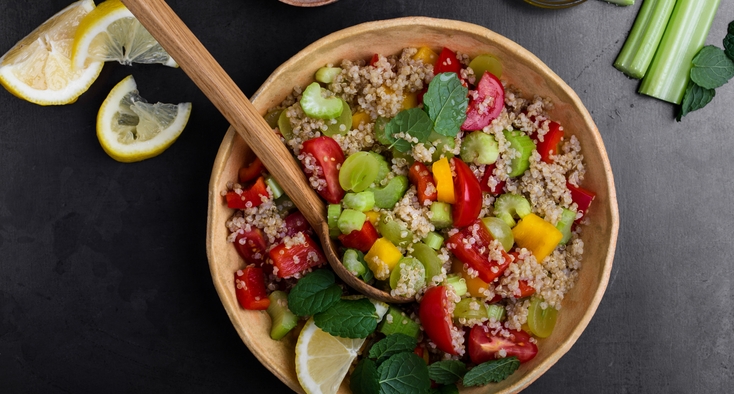We’ve all been told about the benefits of a healthy diet. What is generally less well-known is just how risky the average American diet is.
In fact, it's among the leading causes of death in the United States along with tobacco use and high blood pressure, according to one study in 2016. The study estimated that dietary risks accounted for more than 500,000 deaths in 2016, with 84 percent of those due to cardiovascular diseases, and the remainder due to a combination of cancers, diabetes and other diseases.
Poor diet, in other words, is a significant cause of disease and premature death in America. A large segment of Americans - and increasingly residents of foreign countries adopting high-fat, high-sugar and high-salt diets so common in the U.S. - are eating themselves to a premature death. This is why this site offers so many recipes from Novant Health registered dietitians.
" frameborder="0" allowfullscreen >
“After smoking, the most important thing one can do to lower their risk of death and disease is watch their diet,” said Dr. David Stanford Baker III, a family doctor based at the Novant Health Michael Jordan Family Medical Clinic - North End in Charlotte.
4 biggest risks of an unhealthy diet
Based on what he sees at his office, Baker said the four biggest health threats from eating an unhealthy diet are:
- Cardiovascular diseases, including coronary artery disease, high blood pressure and stroke.
- Obesity, and by extension diabetes, increased cancer risk and joint pain, to name just a few.
- Cognitive decline, such as dementia and Alzheimer’s disease.
- Increased cancer risk. Cancer is spiking in obese millennials and Gen Xers.
“These are some of the most common causes of illness and death in the country and minority communities are disproportionately affected,” said Baker, a Spanish-speaker who serves many African-American and Latino patients. “In my own practice nearly every patient suffers from at least one of these conditions.”
Research has shown diet also plays a role in other common conditions like lung disease, depression and anxiety and autoimmune and autoinflammatory diseases.
6 worst offenders
Baker sees the following foods and habits as posing the greatest dietary risks to his patients.
- Processed foods. Be aware that they tend to be high in salt (sodium), trans fats, and sugars. Examples would be chips, crackers, packaged meats, TV dinners and soups. Here’s a list of 10 processed foods you don’t have to apologize for eating.
- Added sugar. This comes in soda, juice, desserts, cookies, snack cakes, candy and some breads. For help reducing sugar consumption, check out our Sugar Shutdown series of articles.
- Far too little plant-based food. Almost no one gets the recommended daily amount of fruits and vegetables.
- Unbalanced meals: Each plate of food we eat should be made up of vegetables and then some of each food group including protein and healthy carbohydrates such as whole grains.
- Too little fiber. We all need more fiber in our diet from sources like beans, peas, berries and vegetables. High-fiber diets can extend your life.
- Skipping meals and eating primarily at night. The body needs a ready supply of energy space throughout the day and less food at night.
“Almost all the conditions we deal with on a daily basis, no matter what their causes, would be improved by a diet rich in plants, increased physical activity and smoking cessation,” said Baker.









